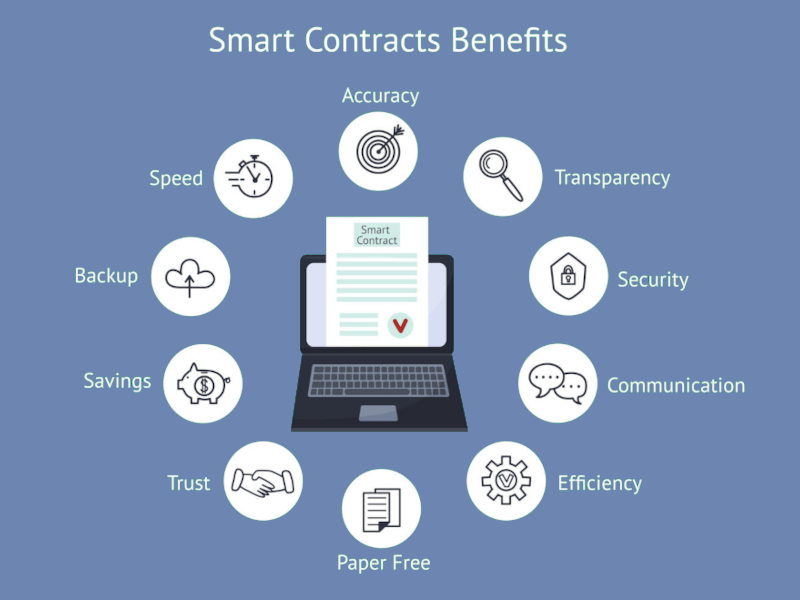Staking & Mining in simple terms
06 July 2023

Smart contracts are digital agreements written as code on a blockchain. They automatically execute and enforce the terms of the agreement, eliminating the need for intermediaries and providing transparency, security, and efficiency.
We’ll be teaching you, how to create a smart contract the easiest way, but now we need to show you a simple explanation of smart contracts:
Smart contracts are computer programs that automatically execute and enforce agreements or transactions when specific conditions are met. Think of them as digital contracts that eliminate the need for intermediaries like lawyers or banks to oversee and enforce the terms.
Agreement: Imagine you want to sell your car to someone. Instead of relying on a paper contract and a third party to ensure that both parties fulfill their obligations, you can use a smart contract.
Digital Code: A smart contract is written as code on a blockchain, which is a distributed and transparent digital ledger. The code outlines the terms and conditions of the agreement, including the details of the transaction, such as the buyer, the seller, the price, and any specific requirements.
Automatic Execution: Once the smart contract is deployed on the blockchain, it becomes active and can self-execute. It automatically verifies and executes the terms of the agreement when predefined conditions are met. For example, the contract might state that once the buyer sends the agreed payment to a specified address, ownership of the car is transferred to them.
Trust and Security: Smart contracts operate on a decentralized network of computers, which ensures transparency and security. Once a smart contract is deployed, it cannot be altered or tampered with, providing a high level of trust and reliability.
No Middlemen: Smart contracts remove the need for intermediaries, such as lawyers or banks, as the code itself enforces the terms. This eliminates the associated costs and potential for human error or bias.
Wide Range of Applications: Smart contracts have applications beyond simple transactions. They can be used for various scenarios like insurance claims, supply chain management, voting systems, and more. Essentially, any situation that requires a trusted and automated agreement can potentially benefit from smart contracts.